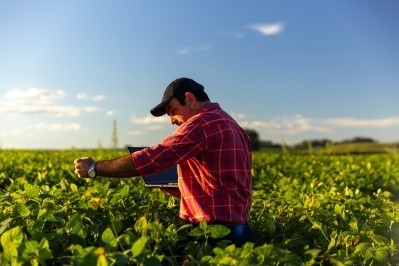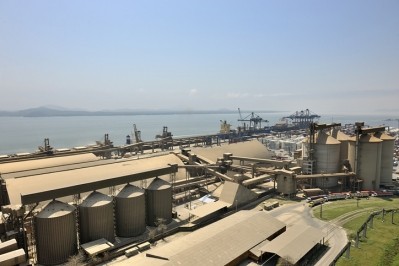Financial scheme launched for Brazilian farmers to commit to zero deforestation soy cultivation

By partnering with actors involved with the soy supply chain, the RCF plans to provide funding for the production and trade of deforestation-and conversion-free (DCF) soy from the Cerrado region of Brazil.
The RCF Cerrado Program 1 offers farmers the option to benefit from access to low interest crop finance if they commit to zero deforestation of native vegetation, thus preventing negative climate impacts and loss of habitat.
The scheme was designed by Sustainable Investment Management Ltd (SIM) and will be financed by the issuances of bonds in the rapidly growing green bond market. Green certificates will be issued by Brazilian company, Planeta Securitizadora Agro, a unit of Gaia Securitizadora SA, and Traive, a credit risk and collateral management firm specialized in Brazilian agribusiness.
The mechanism is looking to promote the use of vast areas of abandoned pasture land for soy cultivation.
“The RCF is an independent initiative designed specifically to provide financial incentives to farmers committed to zero deforestation. The initiative will provide them with advantageous interest rates for the acquisition of crop supplies such as seeds and fertilizers.
“It has already engaged over 200 farmers who expressed interest in participating,” a spokesperson for SIM told FeedNavigator.
Soy buyers [leading UK retailers] have participated in the design of the RCF Cerrado Program 1, so that this initiative can address their environmental objectives while producing large amounts of deforestation and conversion free soy, said the representative.
“Tesco, in particular, has been very involved in the design [of the scheme], as well as Waitrose and Sainsbury’s, to ensure it meets the needs of UK industry and the objectives of the newly launched UK Soy Manifesto," she added.
NGO backing
The development of the RCF has also been supported by WWF, The Nature Conservancy, UNEP, the World Economic Forum’s Tropical Forest Alliance, Good Energies Foundation, and the Global Lab for Climate Finance.
The scheme will be overseen by an environmental committee with the participation of some of these organizations as well as Proforest and IPAM.
SIM said the Cerrado Program 1 complements other responsible soy production initiatives announced during COP 26, such as the UK Soy Manifesto and is also in line with the objectives of the Consumer Goods Forum’s Forest Positive Coalition.
Green finance
Crop finance is a key part of soy farmers' business models, as highlighted at COP26, said Pedro Moura Costa, CEO of SIM: “There is a huge appetite and market for green finance."
The urgent need to reduce greenhouse gas (GHG) emissions from deforestation requires a new flow of financial resources to those at the frontline of agricultural production, he continued.
“At the same time, it is important to conciliate the objective of conservation with that of economic production, so that one complements the other. The RCF intends to solve these problems through its innovative new financial model and to unlock these large flows of green investment to do good, by supporting sustainable agriculture and protecting forests in a financially sustainable way that, importantly, rewards farmers.”
The RCF Cerrado Program 1 is set to get going early next year, initially as a pilot operation, with a view to significantly scaling up the initiative to reach out to hundreds of farmers in Brazil.
“We estimate that through this first pilot, 1.1m tons/year of DCF soy will be produced by around 80 farms which have committed to the program’s criteria, resulting in the conservation of around 300,000 ha of native vegetation in legal reserves, and avoiding emissions of 2.8m tons of CO2e," added the SIM lead.
Greg Fishbein, director of agriculture finance at the Nature Conservancy, said the RCF will create tangible climate and biodiversity impacts by offering farmers who can legally clear their forests a clear financial incentive not to do so. “What is needed now is to bring in a complementary tranche of investors to co-invest alongside the food companies and retailers who have already committed to invest in RCF.”
Edegar de Oliveira Rosa, director of conservation and restoration of ecosystems at WWF-Brasil, also commented on the new scheme:
“We can only meet commitments made last week by 100 governments to end deforestation by 2030 if the products that cause this are cut out of supply chains. Incentivizing farmers to protect key ecosystems will help reinforce the urgency and the broader set of actions needed to stop the loss of native habitats.
“Providing financial incentives to farmers is vital, not just in preventing habitat destruction which may be legal in producing countries, but in shifting to more sustainable ways of producing commodities including by restoring abandoned and degraded land.”









